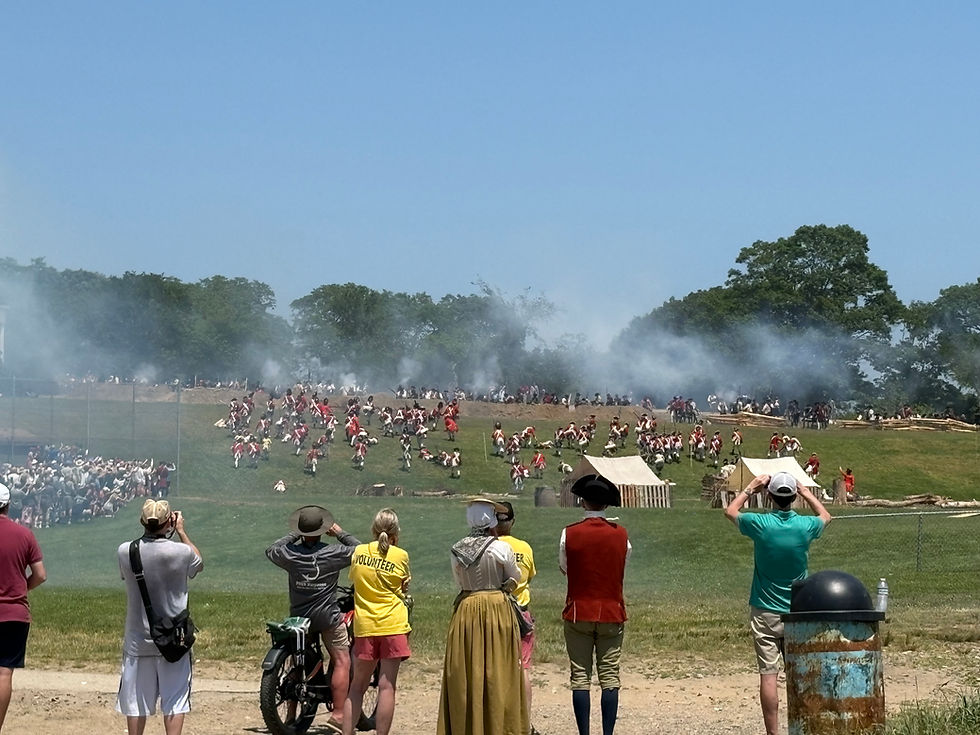A Massachusetts Bay Colony "thanksgiving" in June 1633
- Maggie Meahl

- Nov 26, 2020
- 2 min read
Margaret Baret Huntington stepped off the Atlantic galleon Elizabeth Bonaventura II on or around June 15, 1633. She had arrived in North America. Widowed during the 6-week voyage, one can sympathize with Margaret's likely fear and trepidation of landing in a raw land with five children under the age of 16 in tow and her husband of 10 years gone.
John Winthrop, governor of the Massachusetts Bay Colony, mentioned the arrival twice in his journal. On Thursday June 15 he wrote: "Mr. Graves, in the ship Elizabeth Bonadventure, from Yarmouth, arrived with ninety-five passengers, and thirty-four Dutch sheep, and two mares. They came from Yarmouth in six weeks; lost not one person, but above forty sheep." Clearly he had not been updated with the loss of Simon Huntington. We know Simon died on the voyage because it is documented in the Reverend John Eliot's congregational Record's book (see previous post on Roxbury, MA).
Then on Sunday, June 19, Winthrop wrote, "A day of thanksgiving was kept in all the congregations, for our delivery of plots from our enemies, and for the safe arrival of our friends, etc." Did Winthrop know Margaret Baret Huntington or any of her kin? Perhaps. Margaret was "treated" by John Winthrop, Jr. on her deathbed in 1670. Either he prayed for her or doctored her, or both.

Winthrop recorded no less than ten "days of thanksgiving" in the journal he kept from 1630-1640. "Thanksgivings praised God for his goodness and made sure that His people’s gratitude was made evident. Providential “mercies” were seen as signs that He was pleased with his people while “judgments” with their attendant calamities were believed to be sent by God to mark His displeasure with the way things were going." (from "The American Holiday Thanksgiving," by James Baker).
Now we know what Margaret was doing on her first Sunday in Massachusetts: thanking Providence for her safe arrival. But, how was she really? What would she and her children have eaten during those presumably hot days in June? Probably a combination of English food that she and Simon (her late husband) had brought with them: dried peas, pickled meats, cheeses, and beer.
Hopefully she would have had access to fresher foods from the land and sea: strawberries, eels, cod, greens. It would not be easy to feed five mouths but fed them she did!



Thus, in 17th century New England, there was no official "Thanksgiving Day" full of food preparation and feasting. Rather, in Margaret's world, there were occasionally special days of prayer to assure God of his greatness and power over their everyday piously-led lives.






Comments